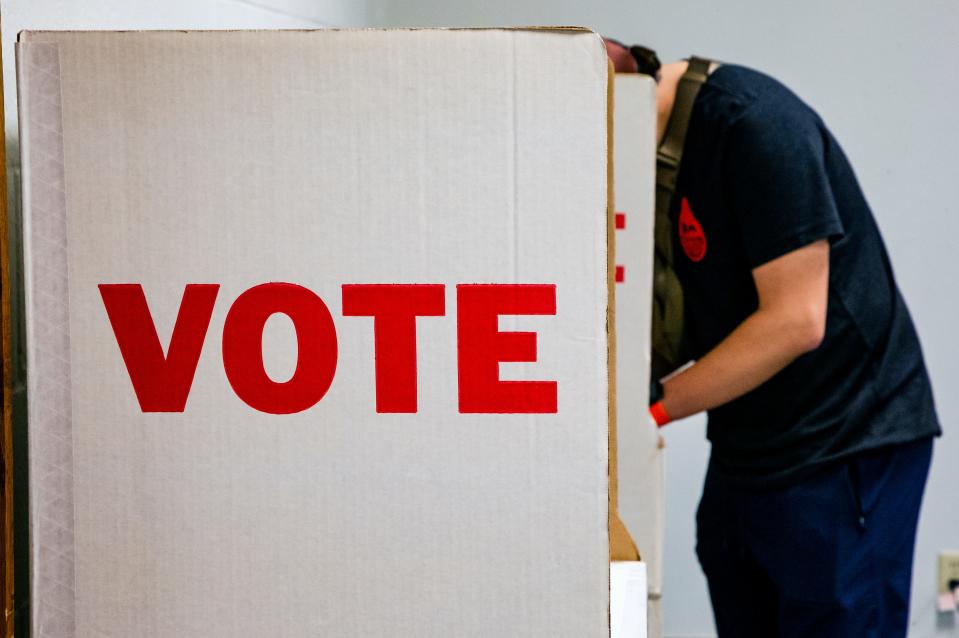Inaugural Oklahoma post-election audit confirms June primary results
The state's inaugural post-election audit confirmed the accuracy of the June 28 primary election results, according to a report issued Monday by the Oklahoma State Election Board.
Election Board Secretary Paul Ziriax directed 33 county election boards to conduct manual tabulation audits last week to examine a portion of the results in seven federal races, eight statewide races, three legislative contests, and several county and judicial races.
"The post-election audit identified zero differences compared to the certified election results," according to the report.
These were the first tabulation audits performed under a law approved by the Oklahoma Legislature in 2019. The law gave the state Election Board secretary the authority to direct county election boards to conduct post-election audits.
More: No charges against former Oklahoma County judge accused of sexually assaulting multiple women
The state Election Board originally planned to start conducting post-election audits during the 2020 election cycle, but the development of policies and procedures to guide the process was delayed during the pandemic.
“Post-election audits add an additional layer of transparency and security to Oklahoma elections and election officials are thankful that the State Legislature enacted a law to allow them,” Ziriax said in a news release. “Oklahoma has one of the most accurate and secure voting systems in the entire world. These post-election audits and the three recounts that followed the June 28 Primary Elections are the latest in a long line of evidence of that.”
Election integrity has been a hot topic at the state Capitol following the 2020 presidential election.
Spurred by former President Donald Trump's baseless claims of widespread election fraud, several GOP state lawmakers have sought a forensic or independent audit of the 2020 election results. State law doesn't allow for audits conducted by non-elections officials.
Oklahoma is one of 34 states that requires some type of post-election audit, according to the National Conference of State Legislatures.
The audit looked at Oklahoma's two U.S. Senate races, most congressional races, the governor's race and more election contests down the ballot. All told, 36 different races were examined.
Tulsa, Cleveland, Canadian and Lincoln counties were among those that were audited. The counties, precincts and races were all randomly chosen.
The audit looked at a fraction of mail-in and early voting ballots as well as those votes cast on Election Day.
More: Oklahoma DHS Director Justin Brown announces resignation
The report notes the audit turned up two minor procedural issues.
In Osage County, the audit found one provisional ballot was incorrectly counted as a vote cast on Election Day, rather than an in-person absentee vote. In Caddo County, one spoiled ballot was put in the wrong place. Election workers in the county will receive refresher training on how to handle spoiled ballots, according to the report.

The state Election Board is likely to conduct post-election audits after the Aug. 23 runoff primary and the Nov. 8 general election, said Misha Mohr, spokeswoman for the agency.
The state Election Board on Monday also released the order in which political parties will appear on the November ballot.
A public drawing determined Libertarian candidates will be given top billing for the general election, followed by Republican candidates and then Democrats. Independent candidates will be listed below candidates from the state's three recognized political parties.
This article originally appeared on Oklahoman: Oklahoma's first post-election audit confirms 2022 primary results

